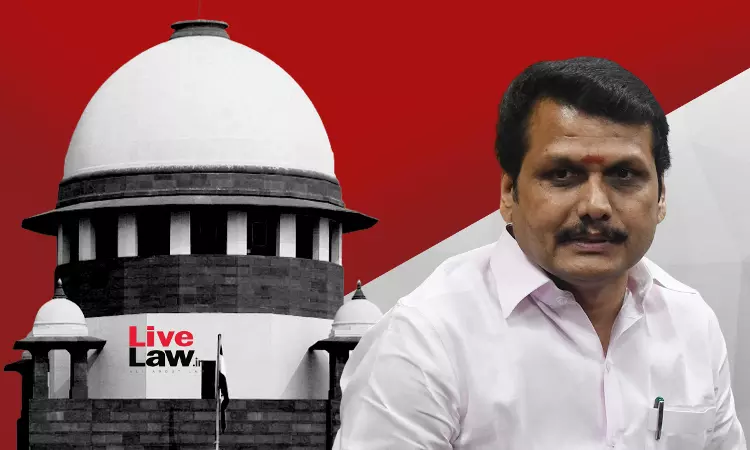Supreme Court Issues Notice On TN Minister Senthil Balaji's Plea Against Madras HC Allowing ED To Take Him Into Custody
Awstika Das
21 July 2023 1:37 PM IST

Next Story
21 July 2023 1:37 PM IST
The Supreme Court on Friday issued notice on the petitions filed DMK leader and Tamil Nadu minister V Senthil Balaji and his wife Megala challenging the verdict of the Madras High Court holding that the Directorate of Enforcement (ED) was entitled to take him into custody in connection with a cash-for-jobs scam in the state.A bench of Justices AS Bopanna and MM Sundresh posted the matter...
